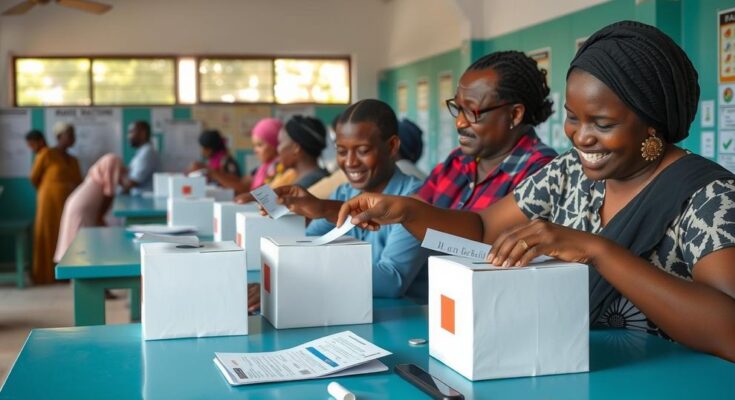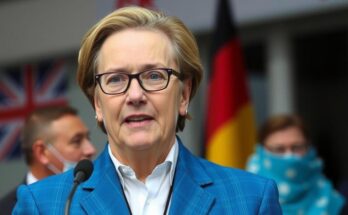Voters in Comoros participated in elections on Sunday to fill the 33-seat parliament amid allegations of misconduct against President Azali Assoumani. Approximately 338,000 voters were expected, with nearly 100 candidates approved by the Supreme Court for candidacy. Despite calls for a boycott from some opposition parties, others chose to engage in the election, marking a significant moment in Comoros’ political landscape.
On Sunday, voters in Comoros went to the polls to elect representatives for the archipelago’s 33-seat parliament. This electoral exercise comes a year following the reelection of President Azali Assoumani, whose tenure has been shadowed by allegations of irregularities during the previous elections. Despite the opposition’s claims, officials from the ruling party firmly deny such accusations. Polling stations commenced operations at 8 a.m., with an estimated 338,000 voters participating in the electoral process. The last parliamentary elections took place in January 2020.
According to the Supreme Court, nearly 100 candidates were approved to compete in this election. President Assoumani’s opponents have accused him of adopting authoritarian measures, and there are suspicions regarding his intentions to groom his eldest son, Nour El-Fath, as his successor upon the conclusion of his term in 2029. Assoumani has maintained control over Comoros since 1999, following a coup, and has emerged victorious in three election cycles since then. In an unusual move, Assoumani bestowed extensive powers upon his son, entrusting him with the coordination of all government affairs.
Some opposition factions, particularly the Juwa party led by former President Ahmed Abdallah Sambi, who is currently serving a life sentence for alleged corruption, have urged a boycott of the elections. Conversely, other opposition groups have chosen to participate. Hamidou Karihila, a candidate from the opposition Hope of the Comoros party, articulated the stance: “The Azali regime is weakened … by participating in these elections we are contributing to further exposing the flaws in its system and accelerating its inevitable fall.” Polls are scheduled to conclude at 4 p.m., with official results anticipated by January 17.
The political landscape in Comoros has been tumultuous, with President Azali Assoumani at the helm since a coup in 1999. His administration has faced accusations of authoritarianism and manipulation of electoral processes. The opposition remains fragmented, with some factions advocating for active participation in elections to challenge the ruling regime, while others call for a boycott. This election is critical for the future political dynamics of the country, especially as Assoumani’s governance has generated significant controversy.
The parliamentary elections in Comoros symbolize a pivotal moment in the country’s political trajectory. With President Assoumani facing opposition accusations and calls for electoral boycotts, the outcomes could influence the future of governance in Comoros. The active participation of various candidates and their contrasting approaches towards Assoumani’s regime reflects the complexities of the current political situation. As results are expected soon, the implications of this election could be far-reaching for both the ruling party and opposition factions.
Original Source: www.voanews.com




